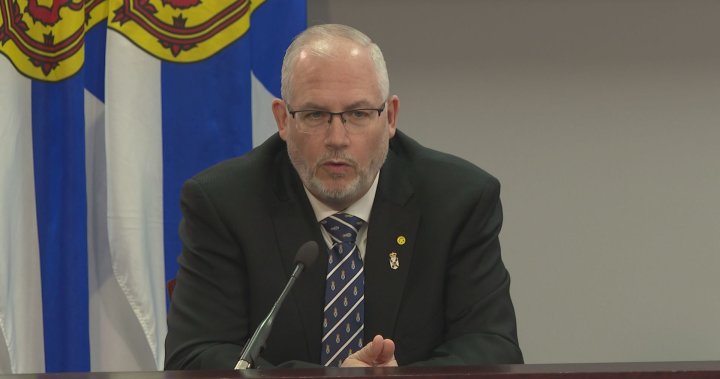Nova Scotia’s Justice Minister Brad Johns recently apologized for controversial comments he made regarding domestic violence during a press conference. In response to a question about the province’s progress in implementing recommendations from the Mass Casualty Commission, which investigated a mass shooting that occurred in the province four years ago, Johns stated that he did not believe domestic violence was an epidemic. He argued that while domestic violence is an issue, there are also other significant problems such as guns, drugs, and violence in general.
The mass shooting in April 2020, where a gunman killed 22 people in several communities in Nova Scotia, was preceded by a domestic assault against his spouse. The inquiry into the tragedy found evidence that the perpetrator had a history of gender-based violence and coercive control tactics against his spouse and other women. The chair of the Mass Casualty Commission, Michael MacDonald, emphasized that many mass casualties often involve individuals with a history of gender-based violence, including intimate partner or family violence.
Statistics Canada data from 2022 showed that the overall rate of police-reported family violence in Canada was 337 victims per 100,000 population, with intimate partner violence at 346 victims per 100,000 population. However, these numbers likely underestimate the full scope of family and intimate partner violence since many incidents are not reported to authorities. Women and girls are disproportionately more likely to be victims of both family violence and intimate partner violence compared to men and boys.
Following Johns’ comments, Nova Scotia Premier Tim Houston quickly interjected to express the government’s serious stance on domestic violence. He emphasized that the Mass Casualty Commission’s report recognized domestic violence as an epidemic in Nova Scotia and Canada, playing a role in the tragic events of 2020. Premier Houston stated that the government was committed to preventing such tragedies in the future, citing the provision of over $7 million to community organizations addressing gender-based violence.
After facing backlash for his remarks, Minister Brad Johns issued an apology in a written statement, acknowledging that his words were wrong and had caused pain. He emphasized the seriousness of domestic violence in Nova Scotia and expressed support for survivors coming forward. However, leaders of the opposition, including Nova Scotia Liberal Leader Zach Churchill and NDP Leader Claudia Chender, called for Johns to resign from his position as Minister of Justice. They criticized his denial of the existence of the epidemic of intimate partner violence and suggested that he was unfit to lead the department.
In response to calls for his resignation, Premier Houston stated that he would discuss the matter with Minister Johns. The controversy surrounding Johns’ comments highlights the ongoing challenges and debates surrounding domestic violence and the need for government officials to take a firm stance in addressing this critical issue. As discussions continue, it is essential for policymakers to prioritize the safety and support of survivors of domestic violence while working towards prevention and intervention strategies to combat this pervasive problem in Nova Scotia and beyond.


